After giving birth, you may think all bets are off when it comes to your diet. While it’s true that you no longer need to avoid certain items like an afternoon cup of coffee or those soft cheeses on your charcuterie board, adequate nutrition in the postpartum period is just as important as during pregnancy—especially if you choose to breastfeed.
And no, we’re not talking about a “clean” diet to drop pregnancy pounds fast or a miracle ingredient that boosts your breast milk supply. Good nutritional practices are important for ensuring that both you and your baby access the essential nutrients you need to stay healthy.
Let’s walk through everything you need to know about parental nutrition and breastfeeding—from why it matters to what to include on your plate—so you and your baby can both get the nourishment you need to thrive.
As a breastfeeding parent, your nutritional habits impact the success of your breastfeeding. And while buzz about specific breastfeeding superfoods like Brewer’s yeast or flax seeds isn’t currently supported by research, adequate intake of certain food types, like protein, is important for sustaining breast milk production.
In fact, the best thing new parents can do to sustain breast milk production isn’t to pack their diet with galactagogues, which are increasingly being marketed right alongside pumping equipment. Instead, it’s important that they eat enough calories and drink enough water.
In general, breastfeeding parents should consume 300–500 extra calories per day—even more than they were eating while pregnant. (And more if you’re breastfeeding multiples!) These calories should come from nutrient-dense sources like leafy greens, fish, lean meat, beans, dairy, or nuts, as opposed to sugary drinks, alcohol, or processed foods.
Breast milk production may also be linked to water intake. Because breast milk is composed of almost 90% water, staying hydrated is important for maintaining an adequate breast milk supply. While there’s no specific recommendation on how much water a breastfeeding parent should drink each day, the general recommendation is to drink at least eight glasses of water a day, or 64 oz over the course of the day, and (of course) whenever you feel thirsty.
If you’re exclusively breastfeeding, breast milk will be your baby’s sole source of nutrition until you begin to introduce solids. With the exception of vitamin D, your body intuitively supplies your baby with all the nutrients it needs through breast milk, regardless of what you eat.
But postpartum nutrition is still important for you as a breastfeeding parent.
Strong nutrition practices will help to:
Keeping your baby healthy is incredibly important, but supporting your own well-being is just as essential.
Nutrients can be split into two categories:
Typically, fortifying your diet with vitamins A, B, and D and consuming adequate amounts of iodine can benefit your baby by boosting the levels of these nutrients in breast milk.
While these nutrients don’t affect the composition of breast milk, they’re still recommended in high levels for breastfeeding parents. This is because, as the body produces breast milk, it pulls nutrients like calcium, iron, folate, or zinc directly from the parent’s stores. If breastfeeding parents don’t supplement their diet with foods rich in these nutrients, they may become deficient and experience adverse health impacts like anemia, hypocalcemia, or decreased immune system function.
Fortunately, many parents likely began supplementing their diet with a prenatal vitamin while pregnant. In many cases, continuing prenatal vitamin use or supplementing with a multivitamin can help support parental nutrition during the postpartum period.
In general, breastfeeding parents should ensure their diet is rich in the following nutrients:
Breastfeeding parents should make sure their diet is rich in iron from foods like beans, lean protein sources, or dark green vegetables like spinach, kale, or broccoli.
Aim to consume at least 1300 milligrams of calcium per day, from foods like dairy products, leafy greens, and almonds.
Vitamin C improves the body’s iron absorption and can be found in citrus fruits. Breastfeeding parents should consume approximately 120 milligrams of vitamin C daily.
Because B-12 is usually found in animal products, it’s especially important for vegetarian parents to boost their levels of this key nutrient. If you don’t eat meat, consider taking a vitamin B-12 supplement. You can also get this from fortified cereal—check your labels.
Eating low-mercury fish (like salmon or trout), walnuts, soybeans, chia seeds or flax can be a good way to boost your body’s levels of omega-3 fatty acids—and you should be getting around 200 milligrams each day.
Aim for eight milligrams of zinc daily from foods like whole grains, legumes, shellfish, meat, and dairy products.
For most pregnant and postpartum individuals, adequate iodine intake is ensured by taking a multivitamin. You can also get it through iodized table salt, which is fortified with this micronutrient.
Typically, the only vitamin lacking in adequate supply in breast milk is vitamin D. That’s because vitamin D is most commonly obtained through exposure to sunlight. In fact, just 30 minutes a week of afternoon sunlight exposure is often sufficient to ensure adequate vitamin D levels in infants. However, many babies are not exposed to enough sunlight to boost their body’s vitamin D to sufficient levels.
There are some caveats to this, though. Families living in lower-light areas such as the Pacific Northwest have statistically lower levels of vitamin D than those who live in sunnier locales. Additionally, many babies are not exposed to enough sunlight to get enough vitamin D naturally.
While supplementing the breastfeeding parents’ diet with vitamin D can help boost a baby's vitamin D levels, many healthcare providers also recommend providing a vitamin D supplement directly to babies to ensure they consume the necessary levels of this key nutrient.
Keep in mind that while sun exposure does support healthy levels of vitamin D—and can feel welcome after a long winter—be mindful of the risks of sun exposure as well, such as sunburn and skin cancer. Be careful to protect yourself and your baby with sunscreen, hats, and other measures when outdoors.
If you’re looking for nutrition advice during the postpartum period, you’ll likely run into a lot of old wives’ tales about what to eat to keep your baby healthy and boost your breast milk supply. There are likely more myths around this than facts, so use a critical eye when you look into it.
Contrary to popular belief, there’s no research to support the notion that specific foods like oatmeal, pumpkin, barley, flax seeds, or bananas can instantly boost breast milk supply. Although these foods are nutritious and may help boost your daily calorie intake, there’s no miracle food required to produce breast milk.
The best way to increase your milk supply is to breastfeed and/or pump frequently.
Some parents also think that certain foods like common allergens, spicy foods, or fiber-rich foods (which may produce gas in adults) are off-limits while breastfeeding. However, there’s no evidence to suggest that what you eat while breastfeeding causes gas, fussiness, or colic in babies; as uncomfortable as it may be, gas caused by fermenting fiber in the gut does not transfer into breast milk.
Instead, eating a diet rich in a variety of foods can actually make your child a less picky eater down the road. That’s because what you eat does impact the flavor of your breast milk—so exposing your infant to a variety of flavors can help them grow accustomed to your family’s preferred diet.
It is true that allergens can be transmitted through breast milk, and for some sensitive babies, these allergens can cause a reaction. However, infants with food allergies or intolerances are less common than you’d think—only 2–3% of babies are allergic or intolerant to specific foods. These babies may exhibit a range of symptoms after breastfeeding, but the most common is diarrhea.
Food sources adversely affecting infants are often dairy products, soy, wheat, and eggs. If you suspect your infant may have a food allergy, share your concerns with your healthcare provider.
While some parents assume caffeine and alcohol are off-limits while breastfeeding, recent research suggests that these items are safe in moderation. Caffeine is transmitted in very small amounts through breast milk and generally doesn’t cause challenges with infant sleep unless consumed in excessive amounts (such as three or more cups of coffee a day).
Similarly, only about 2% of alcohol consumed by a breastfeeding parent enters the breast milk supply, and the alcohol will leave your milk at the same rate it leaves your bloodstream. The CDC recommends allowing 2 hours for the alcohol to clear your system per drink consumed to be on the safe side.
When choosing your postpartum plate, focus on eating a variety of nutrient-rich foods and consuming enough calories and water per day to keep yourself full and hydrated.
Focus on consuming:
The postpartum period can be challenging, but improving your diet doesn’t have to be.
Focus on the nutritious foods you like and eat a wide variety of foods each week—if you have an off day, don’t beat yourself up!
Whether you’re welcoming a child into your life for the first or the fifth time, feeding an infant can be overwhelming. It’s normal to need help and support should be accessible to all. That’s why Nest Collaborative offers evidence-based breastfeeding care by multilingual international board-certified lactation consultants from the comfort of your home.
With appointments available during the week, on weekends, and in the evenings, getting lactation support is easier than ever before. Book an online video appointment with a Nest Collaborative lactation consultant today.
